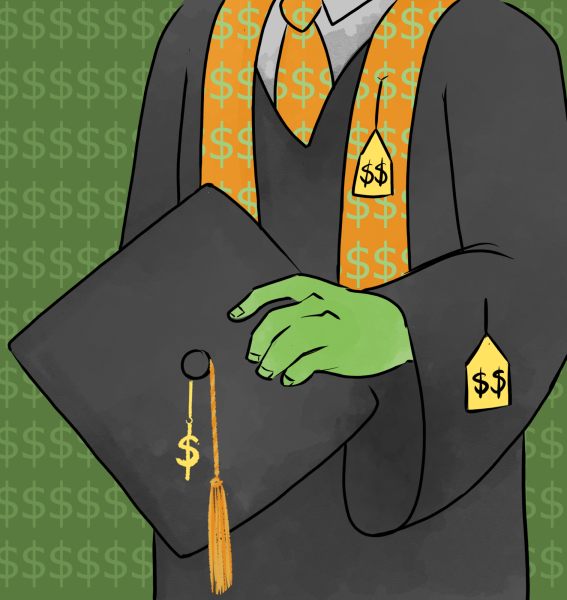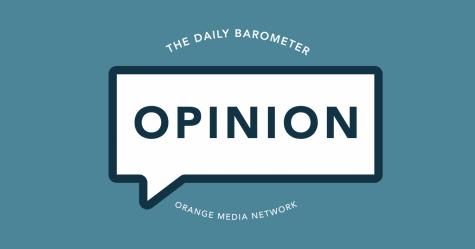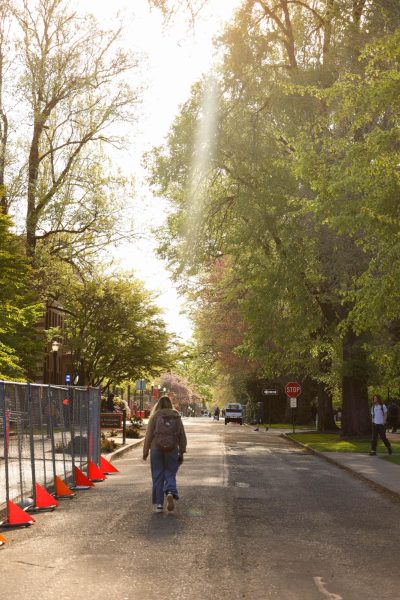Letter from the Editor: News media drops ball on trust
June 10, 2019
Growth occurs when the pain of staying still outweighs the pain of change, goes a common saying. Acknowledging the breakdown in communication between journalists and our readers, viewers and listeners is uncomfortable, but at this point, turning a blind eye causes damage to our perceptions of reality.
For too long, journalists have taken for granted the credibility which has traditionally come with their unique position as keepers and disseminators of stories and vital information. As I take on this appointment, the fragility of the reputation my team has been entrusted with sits in the forefront of my mind.
According to one 2018 survey conducted by the Reuters Institute for the Study of Journalism and the University of Oxford, only 34% of Americans trust the news media. For 18-24 year olds, that drops to 29%. It’s easy to see why, when you look at the prevalence of clickbait and news with a strong left- or right-wing slant.
News, if done right, gives people the ability to make informed decisions, grants the capacity to rise up against abuses of power and curbs the spread of dangerous, divisive ideas. It brings people together. The news media provides a framework for reality, within which we craft our opinions and perceptions of the world. A lack of trustworthy news sources leaves people’s realities open to distortion, whether malicious or not.
This is why it is so dearly essential to me that Americans have faith in the news media.
Climbing the stairs to Orange Media Network in years ago for my first day on the job as a copy editor, having applied for the position out of frustration at the way the news media had covered and in some ways botched coverage of the 2016 presidential election, my motivation was simple. I wanted to ensure my little section of America’s increasingly polarized and sensational news media was kept free of yellow journalism, half truths and bias. The pain of staying passive had finally outweighed my hesitations about taking action. That desire still shapes my actions today, but time and experience have enriched my goals.
What I know now that I didn’t know as a freshman brand new to journalism, is that simply cleaning blatant opinions and factual errors out of articles doesn’t have the impact I thought it would.
Moreover, we as an organization are not perfect. We still make factual errors, accidentally offend members of the community, miss important nuances in stories and tend to favor coverage of certain types of groups. These are significant flaws which I acknowledge and am working to resolve.
As student journalists, we know our stories are written in good faith. However, it’s on us to refrain from assuming that our benevolent intent is apparent. It’s on us to ensure we’re making our publishing process entirely transparent to sources, we’re reaching out to those who disagree with our choices of coverage and portrayals to have discussions and we’re making our mistakes and the way we learn from them public.
Please rest assured we read and consider your every Facebook comment or letter to the editor. Do not hesitate to communicate to us when we aren’t covering the topics you believe should be covered. Be vocal about our mistakes, but I request you remember that we act in good faith.
Many of us enter our jobs as editors, writers, photographers or videographers to bring pure and unbiased truths to light, and to tell the stories which need to be told. One of my goals this coming academic year is to make this undeniably apparent. While I cannot control the trajectory of the national media’s relationship with the public, I can get to work on this little corner.






















































































































